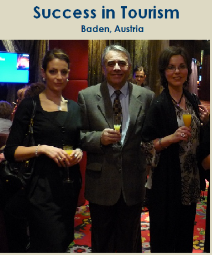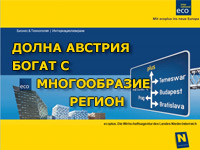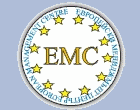- EU Projects
- Events
- Галерия
- EMC Management Abroad
- Sales and Communications Department
- EMC supports and participates in valuable initiatives
- High Profile Management Knowledge
- EMC Contribution Development
- EMC Innovation Management
- EMC Promotes Decisive Companies
- EMC Consultancy Team
- EMC Terms and Conditions
- EMC In House Principles
- Bulgarian Austrian Management Club
- EMC Through the Eyes of the Press
- Bulgarian Austrian Relationship Acknowledgement
Новини
Бюлетин
Тук можете да се регистрирате за нашия електронен бюлетин.
.gif)
.png)
![]()
![]()
PROFILE Prologue
![]()
For the following subjects, EMC has developed a fully integrated training system that we call The DNA of Corporate Skills.
The fundamental philosophy supporting this approach is based on the use of our own psychometric instrument The Communication Style Indicator (CSI). This instrument is based on the theories of Carl Jung and gives each individual an in depth analysis of their own personality, personality styles in general, and how they affect interactive communication within the company. By understanding ourselves, we are in a far better position to understand others and how we interact with them. The CSI provides an overview of a person’s strengths and allowable weaknesses and how best they might be leveraged in a corporate setting.
![]()
All of the programmes listed below will be recorded as screencasts and podcasts and made available to Lufthansa for use on their intra net in order that participants will be able to revisit the training at a later date to ensure full understanding of the subject.
![]()
Essentials of Interpersonal Communication
![]()
This programme supports the CSI and explains the theories behind Jungs work, namely that there are 16 fundamental personality types who work in completely different ways, have very different interactive styles, who bring certain strengths to teams and who prefer varied working styles. The purpose of the programme is to make the participants aware of these theories and how they impact our interactions with clients and colleagues on a daily basis.
The theories explained in this programme have proved to be very effective in a corporate setting to create greater mutual understanding and inter departmental respect. Through exercises and simulations the participants will quickly recognise how their own style impacts others and what they might do to facilitate more effective lines of communication.
![]()
Persuasive Presentations
![]()
Many executives rate making presentations and public speaking as their biggest dread in their corporate careers. The biggest issue appears to be that most people wish they could present like somebody else that they admire and believe that this is the best way to deliver a speech or presentation. However, everybody has their own strengths when it comes to making speeches and delivering presentations. And they all have weaknesses. This programme will prove to every participant that they can easily make a superb presentation by playing their strengths and covering their weaknesses.
Through the use of our 5 Step Presentation Planner and incorporating this with our Touch, Turn, Talk delivery method we can make an effective presenter from every participant.
![]()
Negotiating & Conflict Resolution
![]()
The way we negotiate is also based on our personality style. In conjunction with the CSI we have developed the Negotiating Styles Indicator which gives an overview of the 5 accepted negotiating styles and each participants’ score in all 5 areas. This helps them to understand and leverage their strengths and weaknesses in a negotiation or conflict setting.
The programme itself is based on the firmly established theories of the Project On Negotiation at Harvard University. Coupled with the theories developed by the Wharton Business School and Herriot Watt Business School at Edinburgh University, this programme is unique. It offers the participants a full understanding of the process, what to do in each phase (and what not to do), how to deal with your counterpart and how to leverage every situation to create advantage. When all is said and done, the aim is to negotiate the best deal possible for both sides, but with particular emphasis on our side.
The programme uses several Harvard simulations that will ensure the participants have a complete understanding of how to plan for a negotiation, how to take and keep control of the process and how to guide the process to a mutually satisfactory conclusion.
Should it be required the programme can be tailored to cover Resolving Internal & External Conflict and Negotiating Across Culture.
![]()
People Management
![]()
Managing people effectively is based entirely on understanding yourself and those you manage. By taking the CSI chapters on leading and managing people, each participant will see that everybody requires a different approach. The most effective managers recognise this and adapt their own style to motivate each individual under their supervision. It should not be left to the subordinate to accept the manager’s style, the best managers are those who get the best from their people by understanding what motivates them and which communication or coaching style will be most effective. By leveraging simulations and exercises, this programme outlines the essentials of quality people management.
![]()
Working in Teams
![]()
Effective team work is based on 2 fundamentals, the process and the people. By using the world famous Belbin Team Roles Evaluator, the participants will understand in great detail what makes an effective team and how to build and lead one. They will see that a great team involves everybody fulfilling their project tasks and their team role tasks. Some people are very creative but have limited staying power, others are less creative but will get the job done on time, then there are those who are excellent at evaluating situations and planning, others still help maintain the right atmosphere. Everybody brings their own invaluable contribution and it’s about leveraging these strengths to the maximum and getting individual weaknesses covered that makes for a truly great team experience.
Once the roles are understood it’s far easier to deal with the process. The Project Management process is not rocket science, yet again and again we see teams missing deadlines, offering sub standard work or breaking down completely. People need to understand that teams work best because of their human resources and not because of software or other clinical tools.
![]()
Recruitment
![]()
It all begins at the recruitment stage. Selecting the wrong person can have a major impact on many factors of the business. Most people are trained or coached to get through an interview. It is our experience that the entire interview process needs to be reassessed. The use of the same tired questions that are as predictable as night follows day, the fact that most organizations seem to overlook the benefits of interviewing with a psychometric tool such as the CSI, or by using lateral thinking puzzles to assess thinking speed under pressure. The most important factor in the modern corporate world is retaining staff. Staff cannot be retained if the match between the company and the individual was wrong from the beginning. This programme highlights many interesting methods to build an effective recruitment process that goes beyond the old school traditional and established paths. It provides food for thought as well as giving practical ideas that can be incorporated immediately into any existing system. The name of the game is to attract talent, put them to the correct use and keep them motivated so that they stay with the company beyond the average of 3 to 5 years
Whether delivered as individual programmes or in some kind of package, the above programmes are designed to inspire understanding about how we can all achieve more by dealing with the essential communication and behavioural styles that we all bring to the table.
![]()
To Communicate with Judging Types
To Communicate with Perceiving Types
To Communicate with Sensing Types
To Communicate with Intuitive Types
![]()
Present what they need, and then let them "take the ball and run with it"; expect and welcome their ideas and additions, modifications, etc.
![]()

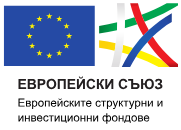
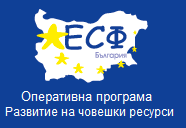

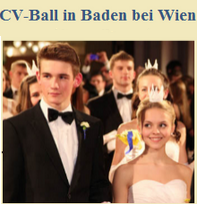
.png)


